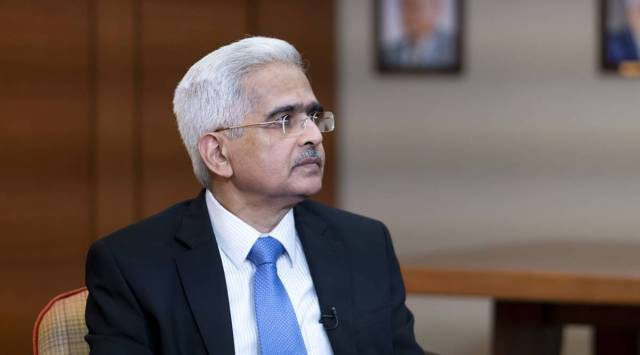Latest Comment
Post Comment
Read Comments
 RBI Governor Shaktikanta Das said, "The RBI does not interfere with the business decision making of any bank and any regulated entities." (File image)
RBI Governor Shaktikanta Das said, "The RBI does not interfere with the business decision making of any bank and any regulated entities." (File image) In the wake of the banking crisis in the United States and Europe, the Reserve Bank has started closely monitoring the business models of banks and financial institutions, Governor Shaktikanta Das said on Thursday. An inappropriate model, he said, can create risks in certain parts of the balance sheets and can blow up into a bigger crisis in future for banks.
The recent developments in the US banking sector, in particular, have raised questions over the business models of individual banks that have faced challenges, Das said while speaking at the Global Conference on Financial Resilience.
“These business models sometimes can create risks in certain parts of the balance sheets of banks which, going forward, can blow up into a bigger crisis. Therefore, we are focusing now on the business models adopted by banks,” he said. He said financial resilience is closely linked to a bank’s business model and strategy.
The RBI has put in place various prudential regulatory frameworks including capital adequacy requirement, asset classification, provisioning requirements and liquidity management framework and the gross non-performing assets (NPAs) of banks have declined to 4.41 per cent as of December 2022, down from 5.8 per cent as on March 2022 and 7.3 per cent as on March 31, 2021. The macro stress tests for credit risk indicate that banks would be able to comply with the minimum capital requirements even under severe stress situations and policymakers in India have maintained a position so far that there will not be a spillover of the crisis unfolding in the US and Europe.
“Many-a-times vulnerabilities arise from inappropriate business models adopted by banks and other financial entities. Over aggressive growth strategies, mindless pursuit of bottom lines, for instance, are often precursors for future problems,” Das said.
The RBI does not interfere with the business decision making of any bank and any regulated entities, he said. It only emphasizes that the regulated entities must demonstrate the adequacy of internal controls and loss absorption capacity to match the risk that their business models may generate.
The RBI’s approach is to flag deficiencies to the senior management or to the board of directors of individual banks but the remedial actions have to be taken by them. “We expect the management and board of directors of each bank to continually assess the financial risks and focus on building up adequate capital and liquidity buffers even beyond the minimum regulatory requirements. This is required for continual resilience and sustainable growth of each individual banks and financial entities,” the Governor said.


